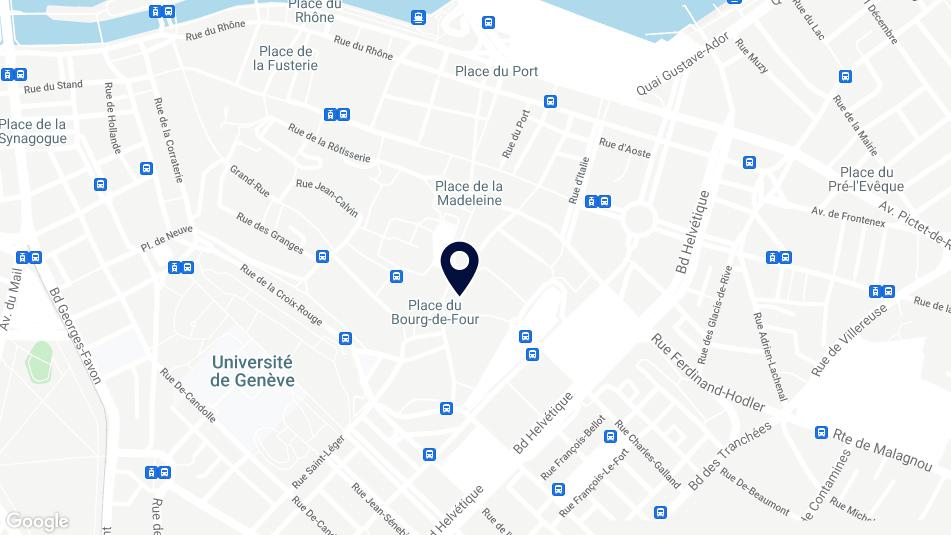Contact details
Address
Office opening hours (with or without appointment)
9h – 12h30
Desk
Greffe universel
Main entrance to the Palais de justice
Opening hours
8h30-12h30 / 13h30-16h30
Telephone
T. +41 22 327 71 61
Opening hours
8h30-12h30 / 13h30-16h30
Mailing Address
Bureau de la médiation
Case postale 3966
1211 Genève 3
Head
Tânia Gazzola
Head
Mission and competences
The members of the Office play a key role in helping to initiate mediation processes.
- They receive, with or without an appointment and regardless of the existence of legal proceedings, any person in conflict who is interested or has been urged by a legal authority to find out about mediation or to attempt mediation.
- They provide all relevant information on how mediation works.
- They encourage the parties to agree to initiate a mediation process. If necessary, they help to identify a sworn mediator to lead the process.
- They grant financial assistance to cover costs.
The mediation Office also ensures the link between mediations and any legal proceedings, for example by informing the court in question when an agreement settles a dispute or, on the contrary, by warning it of the failure of the process.
The mediation Office, if necessary, guides those concerned towards other specific support or amicable dispute resolution mechanisms when these are more appropriate (administrative mediation office, police mediation body, HUG mediation body, parental separation assessment and support service, in particular).
The mediation Office also has a general information mission for the public and professionals, which it fulfills by widely disseminating all useful information on this amicable dispute resolution method, and by guaranteeing the consistency of the information provided by all the players involved in dispute resolution.
Organization
Attached to the Judiciary power and located at the Palais de Justice, the mediation Office is staffed by sworn mediators, who are present on a daily basis. It is under the responsibility of a head of office.
Financial incentives
Free financial assistance is an important means of promoting mediation. The Office therefore grants the following financial incentives, at the request of interested parties.
- Mediation sessions - People involved in a dispute can apply to the Office for financial support for a mediation session (7.5 hours of mediation, renewable up to 3 times), which is granted under the following conditions:
o The mutual and concordant will of the parties concerned
o Recourse to a sworn mediator registered in Geneva
o The dispute must be sufficiently connected with the canton of Geneva.
- Co-mediations - When justified by special circumstances, the Office may also grant financial support for the activity of a co-mediator, at the request of the parties and the appointed mediator.
- Lawyer's fees - At the request of the party concerned, and if necessary, the Office will pay part of the lawyer's fees (2.5 hours at the start of the process), in order to facilitate the start of mediation.
- Legal advice - In exceptional cases, and at the mediator's request, the Office may authorize the payment of legal fees to provide expert advice when a specific legal issue needs to be clarified before the process can be completed.
Choice of a sworn mediator
When the parties to a dispute have agreed to attempt an amicable settlement of their dispute through mediation, they must choose a sworn mediator.
If they do not know a sworn mediator, they are assisted by the Office.
- To this end, the Office proposes three names from among the sworn mediators listed on the list kept by the mediation Commission.
- The three names are selected at random from among the sworn mediators, or from a smaller number meeting the following three additional criteria: official recognition by the mediation Commission of a specialist field, language skills and, at the request of the parties in dispute, gender.
The mediation Office takes great care to ensure that the principles of transparency and fairness are respected.
The Office then facilitates contact between people in conflict and the sworn mediator.
Operation
The mediation incentive scheme is overseen by a commission comprising two mediators appointed by the mediation Commission, two lawyers elected by the lawyers entered in the cantonal register, three magistrates appointed by the Commission de gestion of the Judiciary power and the Secretary General of the Judiciary power, who chairs the Commission.
The steering Commission is made up of:
- Mr. Patrick BECKER, Secretary General of the Judiciary power, president of the commission
- Mr. Yves BERTOSSA, Chief public prosecutor
- Mrs. Emmanuelle IMSAND, vice-president of the Tribunal civil
- Mme Michèle PERNET, judge at Chambre administrative, Cour de justice Cour de droit public
- Mrs. Pascale BYRNE-SUTTON, sworn mediator
- Mr. Philippe SCHNEIDER, sworn mediator
- Me Diane BROTO, lawyer
- Me Philippe COTTIER, lawyer
The commission monitors the operation of the mediation incentive scheme and the Office, identifying any difficulties encountered. Where necessary, it proposes corrective measures, including information, awareness-raising and training for those involved in dispute resolution.
It monitors the development of indicators and statistics, as well as the allocation of financial resources.
It ensures that the system and tools put in place to propose the names of sworn mediators to people in conflict, operate fairly and transparently.
It draws up an annual report on its activities (cf. section Literature), which is submitted to the Cantonal parliament and to the Commission de gestion of the Judiciary power.
The commission is also responsible for selecting the sworn mediators who run the mediation Office.
Useful links
- Loi sur la médiation (LMédiation – E 6 25)
- Constitution de la République et canton de Genève, du 14 octobre 2012 (art. 120)
- Loi sur l'organisation judiciaire (LOJ – E 2 05)
- Règlement relatif aux médiatrices et médiateurs assermentés (RMA)
- Règlement relatif au dispositif d’encouragement à la médiation (RDEM)



